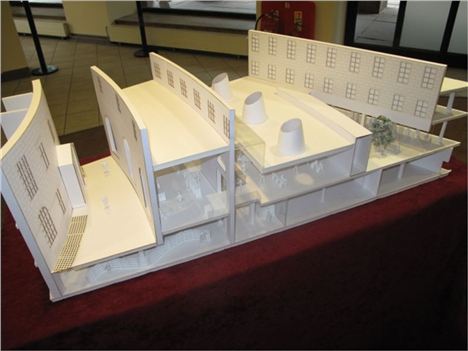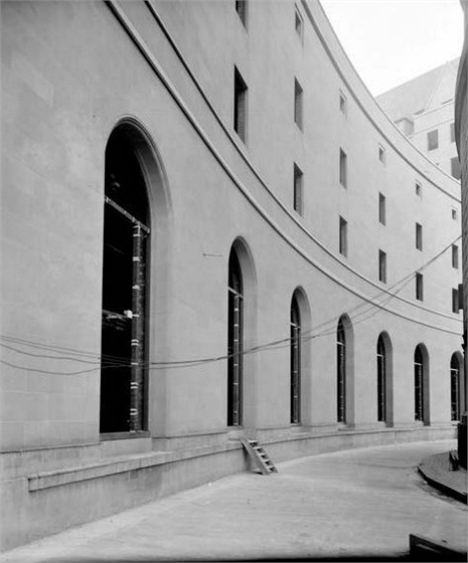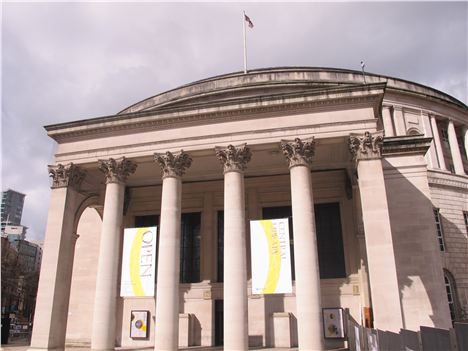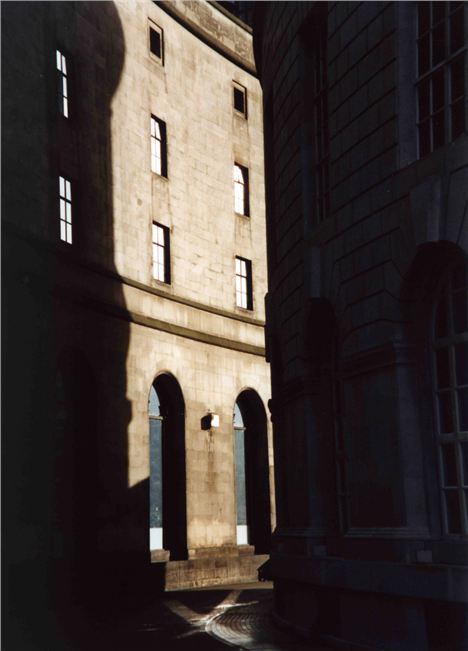LIBRARY Walk has been closed to the public for some years as refurbishment work to Central Library and the Town Hall Extension has taken place.
Meanwhile Manchester City Council has ignored government guidance - or wasn’t aware it was in place - and built a designer glass lobby across this much-loved access path between Mount Street and St Peter’s Square.
Let’s call it a ‘glass lobby’ because a council representative confirmed last week that, “it is not a building”.
Over 1,300 people signed a petition and 127 letters of objection were submitted. The contentious moving of the Cenotaph had two written objections.
All this means you could be forgiven for not realising Library Walk is still a public Right of Way. The non-building has Planning Permission, but this isn’t enough to close the Right of Way, which is the subject of an on-going Public Inquiry. If the Council lose, the building may have to be dismantled.
An expensive Inquiry would have been avoided if the Council had listened to people earlier.
The glass lobby was not included in the original St Peter’s Square Consultation. So the first real opportunity to object was to the Planning Application. Over 1,300 people signed a petition and 127 letters of objection were submitted. The proposal was approved in a Planning Committee meeting packed with objectors. Demonstrating the strength of feeling, the Inquiry has heard, that none of the other applications related to St Peter’s Square, including the contentious moving of the Cenotaph, had more than two written objections.
 Oh look there's no 'glass lobby' on these plans
Oh look there's no 'glass lobby' on these plans
The meticulously fair process of the Inquiry has been slow but occasionally entertaining with questions such as, “Are there any take-aways on Library Walk?” and statements such as “I am not a satnav, I am a human being.”
Council witnesses earned their corn last week, facing cross-examination by up to fifteen interested parties. Some information exposed may not be pertinent to the Inspector’s decision. Nonetheless, it was surprising to learn that the officer in charge of the development was unaware of relevant government guidance.
Confusion in the ranks about the separation of responsibilities between Planning and Capital Programmes raised concerns about Council processes. Essential to the Council’s case is the argument that works at Library Walk are not complete, so eyebrows were raised when it was confirmed a site visit wouldn't require protective clothing, usually essential if there’s the slightest ongoing work. It was quickly agreed activity will be suspended next week.
 Back in the thirties just as Library Walk's beauty is about to be revealed to the public
Back in the thirties just as Library Walk's beauty is about to be revealed to the public
The real reason for the closure of Library Walk remains unclear.
The Council hope to Stop Up the Footpath, install gates at Mount Street and retain the glass lobby built at St Peter’s Square. Planning Conditions will allow public access between 6am and 10pm. But, this doesn’t give the same protection as a Right of Way. The development critically damages the experience of passing through Library Walk, which the 20th Century Society describes as “unique within Europe”.
Rumours that architect of Library Walk, Ian Simpson, gave a lecture years ago describing it as his favourite space in Manchester seem moot when the work is so far advanced. Opponents of the closure reference Gordon Cullen's concept of Serial Vision to explain how the design of the Walk between curved buildings slowly reveals views of St Peter's Square and The Friends Meeting House. Peter Zumthor was also quoted alongside architectural historian Nikolaus Pevsner.
The challenge facing objectors championing architectural quality is to make their argument in terms relevant to the Inquiry's specific remit. The inspector must firstly decide if the closure is necessary.
The council's arguments include the bizarre idea that the Central Library, with its huge portico, needs a more legible entrance.
 Now where is the entrance to Central Library, can't see it anywhere
Now where is the entrance to Central Library, can't see it anywhere
More serious is the reduction of crime and anti-social behaviour, but their crime figures don’t actually refer to Library Walk and a Council officer admitted the proposal creates new opportunities for crime. A very serious attack occurred in 2010 but there is not a shred of evidence to suggest crime levels are worse than on other city streets. Witnesses spoke of safely using the Walk day and night. Confidential’s own Jonathan Schofield rubbished perceptions of fear and Dr Millington suggested ways to improve safety without closure.
Further justification is fire evacuation and accessibility. But how constructing another potential bottleneck aids this is hard to understand and in any case a Council officer confirmed on Wednesday that both the Library and Town Hall Extension are already safe and accessible. Questions from the Manchester Disabled People’s Access Group (MDPAG) raised concerns that the lobby itself may be inaccessible to many, including visually impaired and autistic users.
The need for improved connection between buildings for the delivery of council services was challenged by Councillor Davies. Others queried the methodology for calculating projected visitor numbers. The Council's aspirations for accessibility, safety and improved connection between buildings could simply be achieved by opening doors directly out onto Library Walk and the Right of Way.
Regardless of its outcome, this Inquiry has united people, passionate about the city. It feels like an exciting moment,
Next the Inspector must understand the disadvantage caused by the loss of the Right of Way. The Council reduces this to a matter of distance. The Greater Manchester Pedestrian Association (GMPA), the Open Spaces Society (OSS) and DPAG challenge the suitability of the alternative routes which are less accessible and not traffic free. They highlight that only part of Lloyd Street is a Right of Way. If Library Walk were closed this would be the only guaranteed footpath through the block. Academics and pedestrian groups argue against this loss of urban permeability.
There is considerable evidence that people choose to walk further to use Library Walk. The real disadvantage of losing Library Walk would be the loss of a guaranteed right to experience an uplifting, special place in the city.
This must be an uncomfortable moment for the Council but to quote Council Leader Sir Richard Leese, “That people are prepared to campaign for things in the city is important, it’s good.”
Fingers crossed, Library Walk will soon be open and unobstructed again for our enjoyment. But, regardless of its outcome, this Inquiry has united people, passionate about the city. It feels like an exciting moment, one that underlines the need for the Council to listen and not high-handedly believe that only it knows best.
The Inquiry will resume again on the Thursday 6 November at 11am in the Coroner’s Court, Manchester Town Hall. There is still one Council Witness to give evidence and at least six Opponent witnesses. It is as yet unclear when a judgement will be delivered.
Emma Curtin is a Mancunian architect and teacher at the Liverpool School of Architecture.
 What we have lost - but will be forever? Over to you inspector
What we have lost - but will be forever? Over to you inspector











